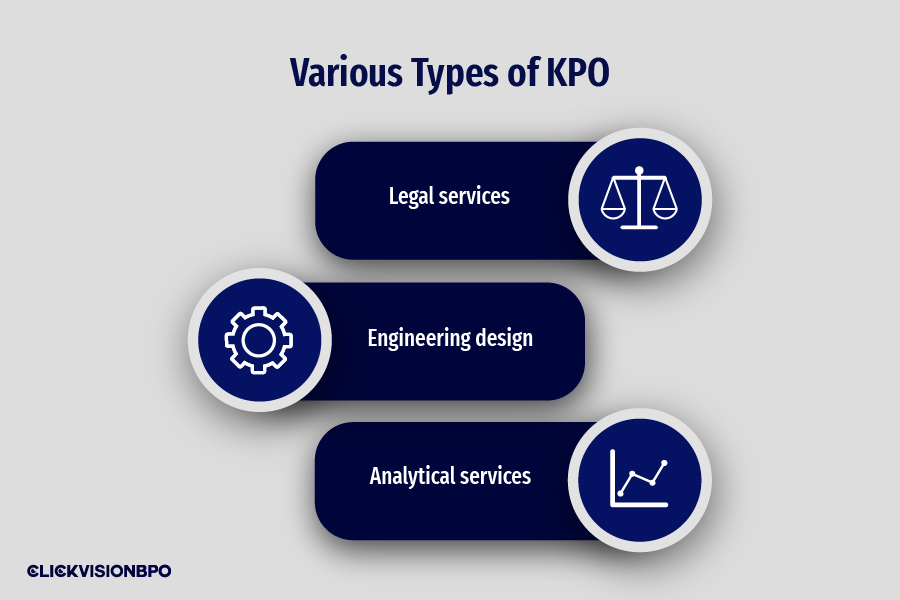In today’s globalized market, companies are constantly on the lookout for strategies to streamline operations and harness expertise without incurring hefty costs. This is where Knowledge Process Outsourcing (KPO) comes into play. What is KPO, and could this outsourcing type be beneficial for your business to thrive even more?
In here, we’ll delve into the intricacies of KPO, from its definition to common KPO services and benefits, and we’ll help you understand knowledge processing and explain how KPO can help you gain an advantage over the competition.
Key Concepts of KPO
KPO or Knowledge Process Outsourcing offers businesses access to a large pool of professionals with extensive expertise in specialized areas. The process works quite similarly to BPO as it involves contracting or partnering with an individual or a firm that works as an external service provider.
KPO is often described as a subset of BPO, but knowledge process outsourcing involves more specialized, analytical work. Although quite similar to BPO, with KPO, you get an expert staff with advanced education and expertise in a specialized area. The main motivation of companies investing in KPO is obtaining highly educated and skilled personnel without investing in recruiting, training, or developing such a department in-house.
One of the most well-known advantages of KPO is that it allows companies to add experts in specific fields without having to open new permanent roles in their organization.

Source: freepik.com
Differentiating Specialized Knowledge from General Skills.
To make a clear distinction between specialized and general knowledge and skills, we will have to look into each one individually. General skills and knowledge usually entail a good understanding of a certain domain and correctly utilizing a certain model or sequence. In contrast, specialized knowledge is commonly used to solve more complex and intricate problems and perform more complicated tasks.
The main difference between specialized knowledge and general skills lies in the fact that specialized skills require a deeper understanding of a certain subject and experience in handling such work.
The emphasis in KPO is placed on business expertise, which naturally calls for the use of specialized skills rather than general knowledge. KPO revolves around expertise and domain knowledge. Their employees put analytical and strategic thinking into practice to provide businesses with analysis and solutions. The expert knowledge involved in KPO requires advanced degrees and specialized expertise within a given field.
Understanding Knowledge Processes
The main goal of KPO is to leave the high-level tasks to a company with a team of individuals with specific subject matter expertise. KPO usually handles market research, business research, investment research, data analysis, learning and education solutions, etc. However, this is just a broad overview of KPO’s tasks.
Diving deeper into its role, we may find that KPO can help businesses achieve success across various sectors. For instance, KPO might offer efficient engineering design and help companies with services such as 3D modeling, prototyping and testing, product design, and more.
KPO providers can also offer financial services. Outsourcing such tasks gives companies access to sophisticated financial tools and personnel experienced in using these tools. Obtaining such tools and employees would be a costly investment otherwise. In financial KPO, companies may benefit from services such as equity research, financial modeling, investment research, etc.
Benefits and Advantages of KPO
To gain a deeper understanding of what Knowledge Process Outsourcing is, it is best to look through its benefits. Here are some of the most common advantages a company can gain by investing in this type of outsourcing:
Cost Savings
The allure of KPO for many companies lies initially in the financial aspect. The staffing process for specialized positions can be lengthy; these positions usually call for higher salaries due to specialized skills being involved. Through KPO, companies avoid the high costs of maintaining such employees in-house.
Operational Efficiency and Productivity
Outsourcing certain knowledge-based tasks allows companies to dedicate more time and attention to core business activities. Another added benefit of KPO is that often, these providers work in different time zones. When operations happen during different hours, there will be a more seamless workflow since tasks are handled sequentially, and business runs 24/7.
Competitive Advantage
KPO also offers companies access to advanced tools and technology that might be otherwise unattainable for some companies. This is why KPOs can often give businesses an advantage over their competition.
The use of sophisticated software and advanced tech is common in KPO companies as they perform specialized tasks that require the best technology available. Besides the latest tools, companies also have field experts at their disposal. This is another added benefit of KPO that can potentially help a business get the best results possible.

Source: freepik.com / Photo Contributor: use7814140
Various Types of Knowledge Processes Outsourced
The services offered by KPO providers are diverse and may cater to the needs of different industries. Here are some examples of the type of services businesses may outsource:
Legal services
Within KPO, there is a special segment commonly referred to as LPO (Legal Process Outsourcing). Companies that offer LPO services are highly efficient at tasks such as e-discovery, litigation support, drafting and reviewing contracts, and more. Legal KPO is usually sought after by big law firms or corporations. However, any company needing in-depth legal analysis or legal research may opt for LPO.
Engineering design
KPO engineering design is often referred to as engineering design outsourcing or EGO. The services offered by KPO companies may include anything related to design, production, and maintenance.
The main motivation behind outsourcing engineering design is usually speeding up the product life cycle and ensuring that a product can reach the market without much delay.
Companies that prefer outsourcing engineering design are usually involved in sectors such as manufacturing, biomedicine, design consulting, etc. Some common services that EGO offers include mechanical drawing, prototyping, product design, and more.
Analytical services
Data analytics and interpretation are among the most popular KPO services available. The reason behind its popularity is simple. Any business looking for actionable insight may benefit from these analytical services.
For instance, a KPO provider can offer an organization an in-depth supply chain data analysis. Through this analysis, the company can see its current status in inventory management, shipping, and transportation segments.
The insight offered by KPO analytics helps businesses prepare an actionable plan to improve their overall efficiency and gain more profit.

Conclusion
This exploration of knowledge process outsourcing reveals that KPO can be an invaluable modern business strategy. After all, what is KPO but a gateway to operational excellence and strategic advantage?
Tapping into the reservoir of specialized knowledge KPO providers offer, businesses can gain a competitive edge in their industry. They may also achieve greater operational efficiency and significant cost savings.
It’s clear that KPO stands as a pillar of innovation and growth for businesses seeking to leverage expertise without the burden of in-house development.

With a strong background in the marketing industry and healthcare leadership roles, Filip is responsible for CLICKVISIONBPO’s sales strategies and onboarding new clients. With a passion for sharing insights gained from his experience, he also shares valuable knowledge through industry related articles.
